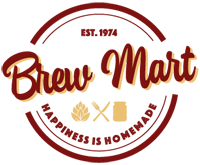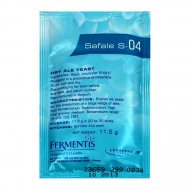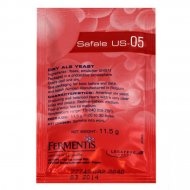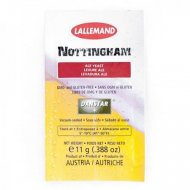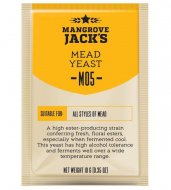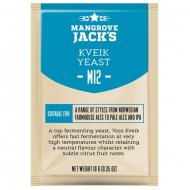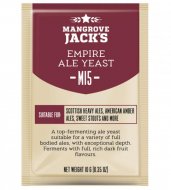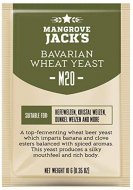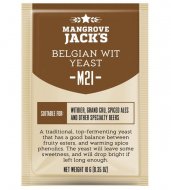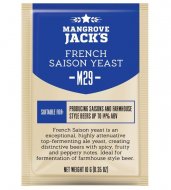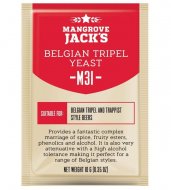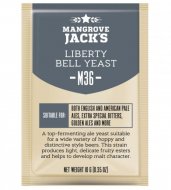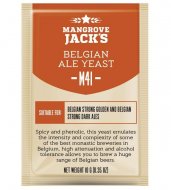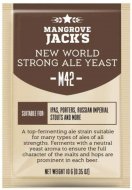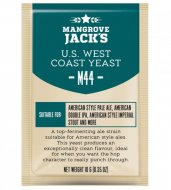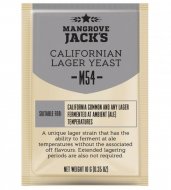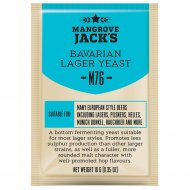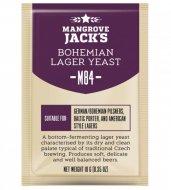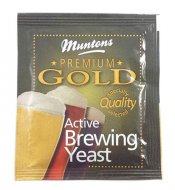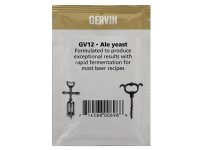Sign up to the Brew Mart newsletter for the latest news, offers & more
Please note that Brew Mart will be closed on Saturday, 5th July, AND Saturday, 12th July. Thank you.

Beer Yeast
Brew Mart supplies a wide range of beer yeasts. All our beer yeast is high quality and provide good value for money.
We stock Safale S-04 and US-05, Lallemand Munich, Windsor, Nottingham, Bry-97 american west coast yeasts and Mangrove Jacks.
Beer / Ale Yeast.
Brew Mart believe in offering the best possible ingredients for the home brewer.
Most brewers use a yeast strain called Saccharomyces when making beer.
Saccharomyces is a Latin word which means sugar fungus." It's apt, given that the yeast that goes into beer loves sugar.
What yeast can you use for beer / ale?
The two distinct types of brewing yeasts used are ale and lager yeasts, also known as the top-fermenting and bottom-fermenting yeasts.
Ale yeasts give rise to diverse beers, but, despite the differences of the final product, most ale-making strains belong to Saccharomyces cerevisiae.
Is ale / beer yeast and brewers yeast the same?
Buy brewers yeast which is sometimes called beer yeast, is a slow-rising yeast that is particularly effective at making beer.
It produces tiny bubbles and helps with fermentation. You may use brewer's yeast as a nutritional supplement or addition when baking bread for flavour.
Brew Mart stocks many varieties of dry brewing yeasts for beer making.
Buy dry brewing yeasts as they are easy to store and come in handy sachets, which are the correct size for each brew, eliminating waste and contamination.
Stringent quality control standards are applied during the manufacture of beer / ale yeasts to avoid microbial contamination and reduce the water level to below seven per cent.
The stability of dry beer / ale yeast allows for significant quality control testing to ensure less than one bacterium or wild yeast cell is found per million cells of brewing yeast.
Understanding The Different Yeast Characteristics.
Choosing a beer / ale yeast appropriate for a given beer involves some knowledge of crucial yeast characteristics such as Attenuation, Flocculation, Temperature Range, Alcohol Tolerance and the beer flavour you desire.
Alcohol Tolerance:
Most ale yeasts are sensitive to alcohol content and will have trouble fermenting a very high original gravity wort.
Wine, Champagne or other alcohol tolerant yeasts are frequently used for primary fermentation or as a second yeast to ensure complete fermentation of very high gravity beers such as barley wine.
Attenuation:
This means the percentage of sugars converted to alcohol and CO2. High attenuation of beer yeast will give a dry, clean finish.
Low attenuation yeasts typically leave malt, esters and other flavours, leaving a full-bodied complex beer flavour.
Flocculation:
Flocculation means the ability of yeast to form clumps (flocs) during the fermentation cycle.
High flocculation yeasts tend to fall out of the beer before completing fermentation, leaving a more complex, higher gravity beer.
Low flocculation yeast is often called "powdery" yeast.
Low flocculation yeasts such as lagers will completely ferment, leaving a cleaner finish, but separating the yeast from the beer can be challenging.
Temperature Range:
Different yeast strains have different temperature tolerances. Beers ferment at a higher temperature. Higher temperature fermentation is associated with higher ester production and lower temperature with clean, dry flavours.
Beer / Ale Flavour:
Individual yeast strains can add widely varying flavour profiles to your beer. A good example is Hefe-Weizen, where a significant majority of the clove and banana beer flavour comes directly from the yeast. Matching the yeast strain to the beer style is best to provide proper flavouring.
